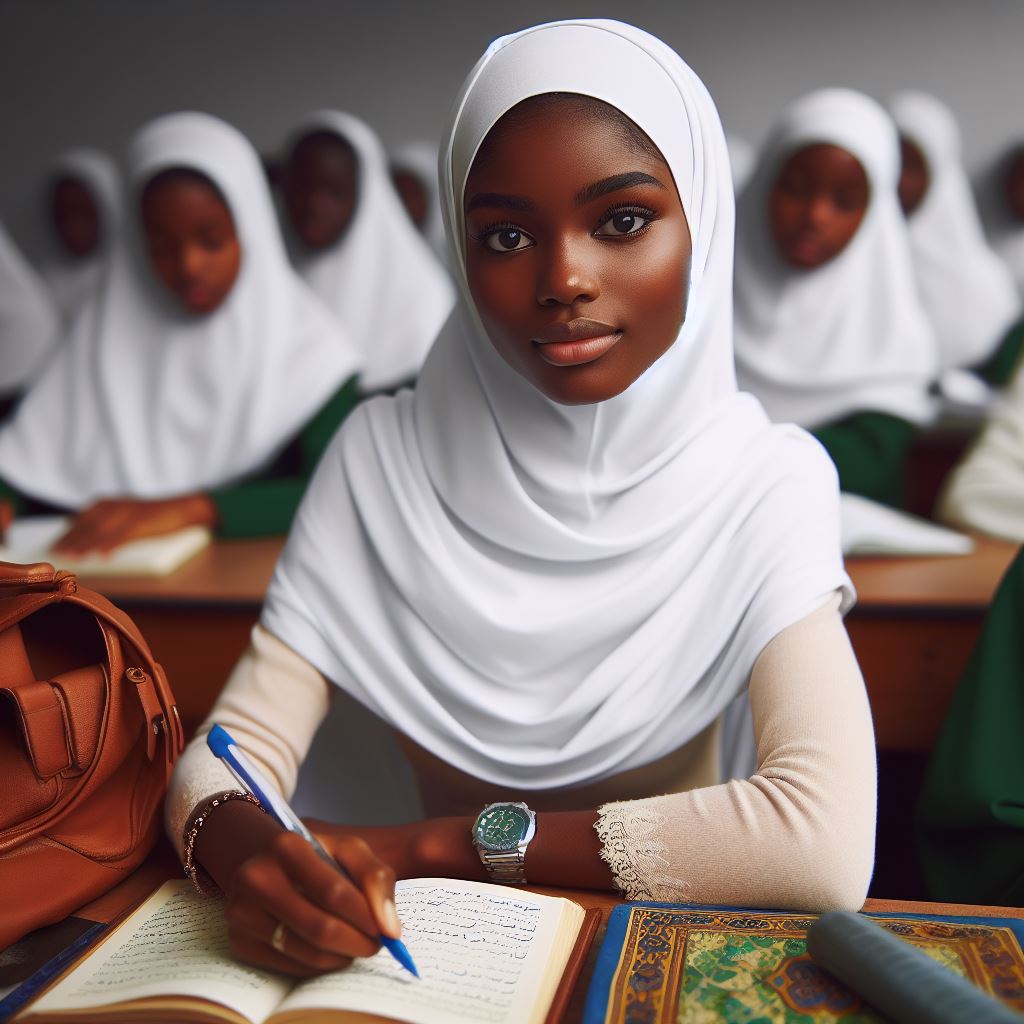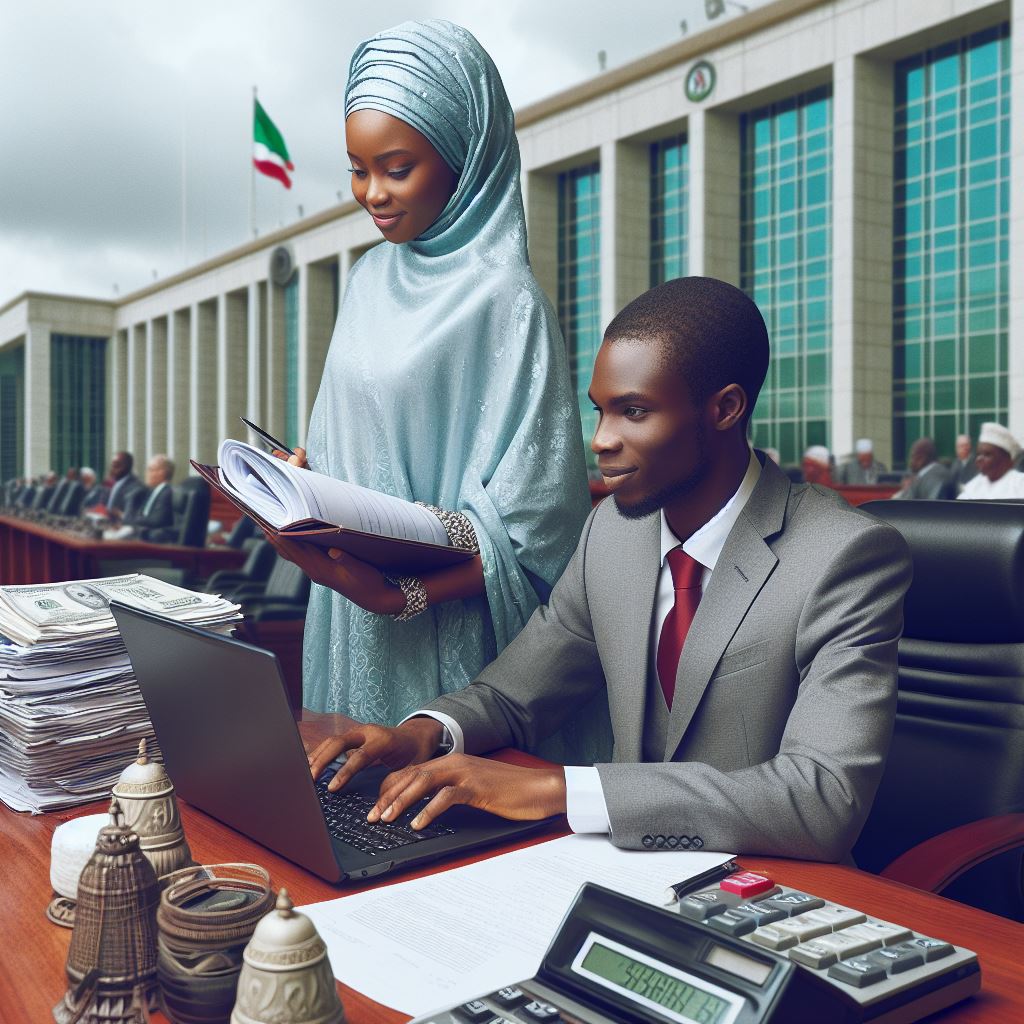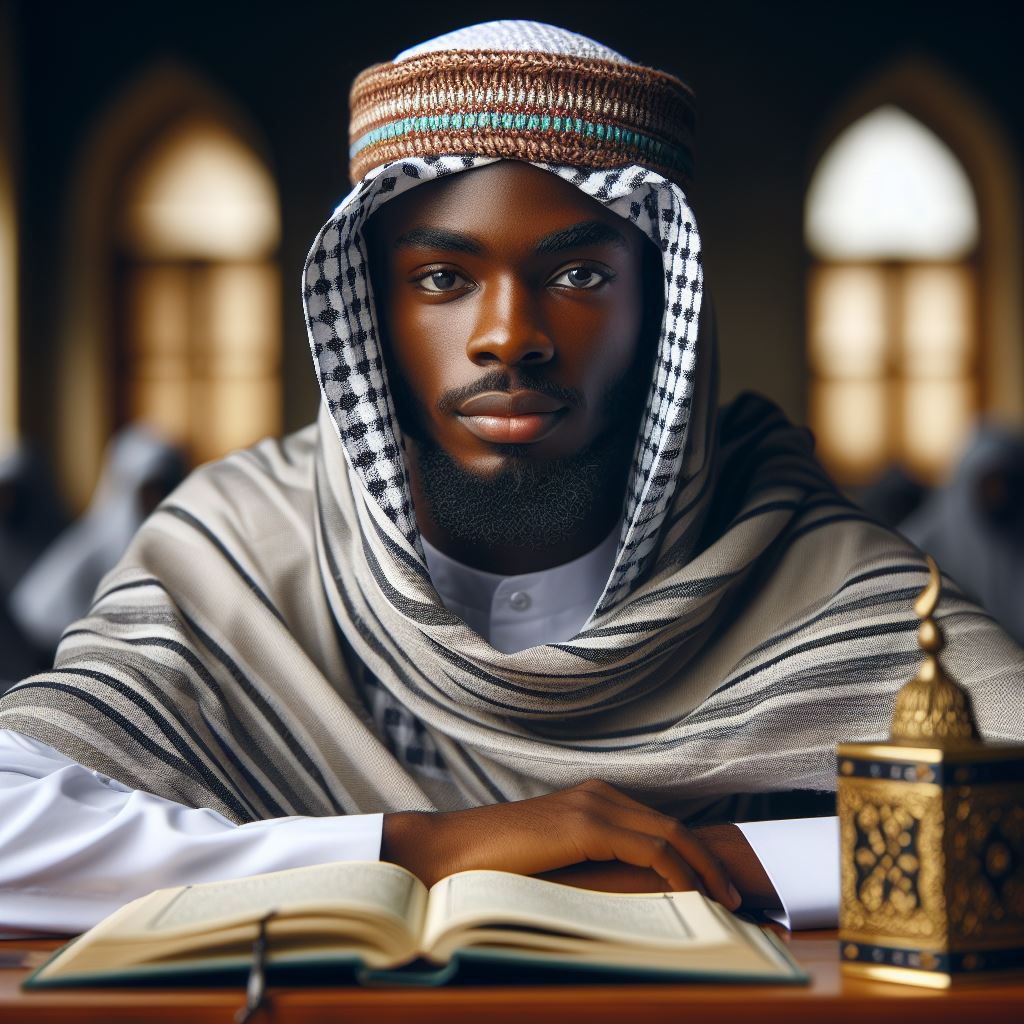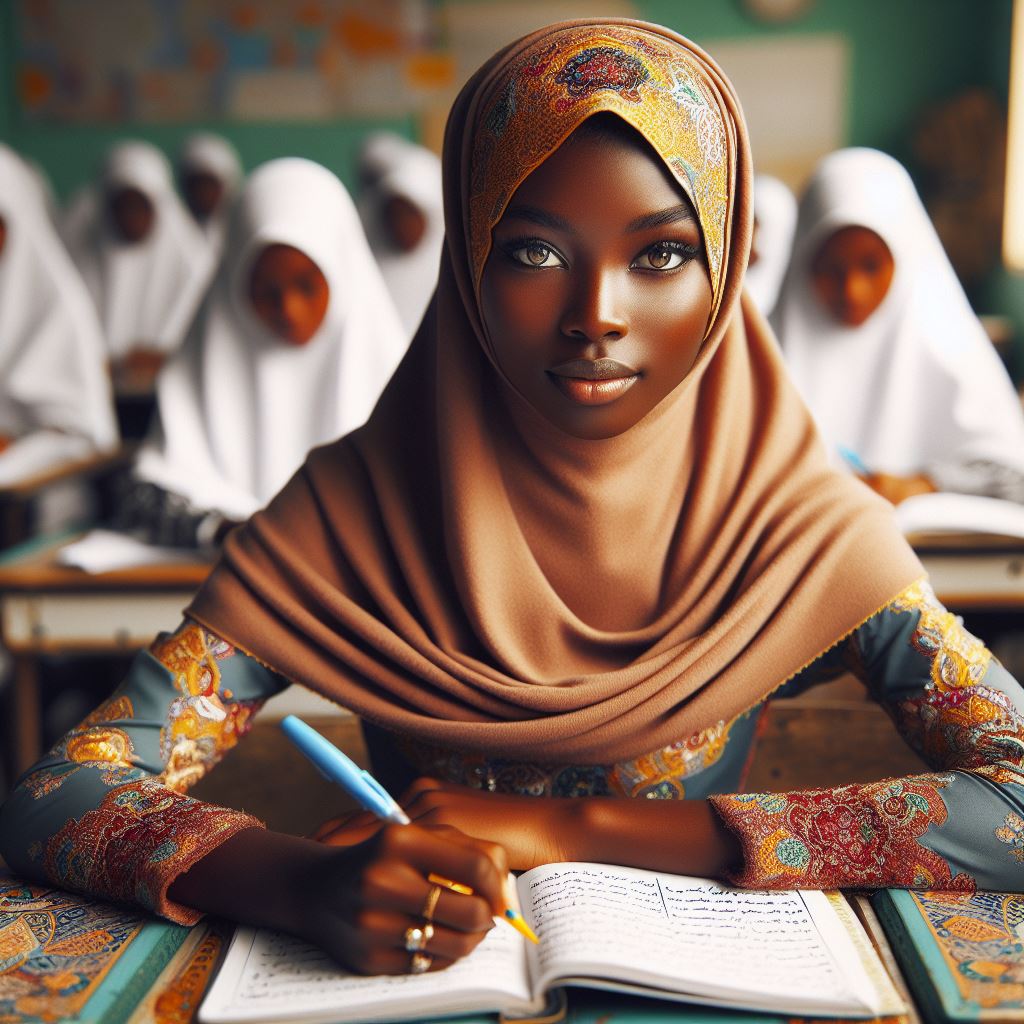Introduction
Art residencies and fellowships provide artists with time, space, and resources to create and develop their work.
These programs are crucial for artists in Nigeria, offering opportunities for growth and exposure.
Residencies typically offer temporary stays in specific locations, allowing artists to immerse themselves in new environments and cultures.
Fellowships often provide financial support, mentorship, and professional development opportunities, enabling artists to pursue their projects without financial constraints.
Both types of programs enable artists to focus on their creative processes without daily distractions.
These opportunities are essential for fostering innovation and creativity within the Nigerian art community.
Artists gain access to new networks, ideas, and collaborations through these programs.
“Art residencies help artists connect globally,” noted Chika Okeke-Agulu, a renowned Nigerian artist.
Art residencies and fellowships are vital in nurturing and sustaining the vibrant Nigerian art scene.
They offer artists the chance to experiment, innovate, and collaborate.
By supporting these programs, we can ensure that Nigerian art continues to thrive and gain international recognition.
Overview of Art Residencies and Fellowships in Nigeria
Art residencies and fellowships in Nigeria have a rich history that dates back to several decades ago.
These programs have played a significant role in shaping the country’s art scene and providing opportunities for artists to grow and develop their craft.
Brief History of Art Residencies and Fellowships in Nigeria
- Art residencies and fellowships in Nigeria began to gain popularity in the late 20th century.
- These programs were initially established to provide artists with a space to work and collaborate with other artists.
- Over the years, these residency programs have evolved to offer various opportunities for artists, including funding, mentorship, and exhibition opportunities.
Well-known Residency Programs in Nigeria
- NIROX Foundation Residency Program: Located in Lagos, this program offers artists a serene environment to focus on their work.
- Arthouse Foundation Residency: Based in Lagos, this program provides emerging artists with a platform to showcase their work.
- CCA Lagos Residency Program: The Center for Contemporary Art in Lagos offers residencies to international and local artists, fostering cross-cultural exchanges.
Impact of Residency Programs on the Nigerian Art Scene
- Residency programs have contributed to the visibility of Nigerian artists on the global stage.
- These programs have facilitated collaborations between local and international artists, leading to the exchange of ideas and cultural practices.
- Residency programs have also provided artists with the resources and support needed to experiment with new techniques and push the boundaries of their creativity.
Essentially, art residencies and fellowships in Nigeria have played a crucial role in nurturing and supporting the country’s vibrant art scene.
These programs continue to provide opportunities for artists to grow, learn, and engage with a diverse community of creatives, ultimately contributing to the rich cultural landscape of Nigeria.
Read: Student Experiences: Life in Communication Arts
Benefits of Art Residencies and Fellowships
The Various Benefits that Artists Can Gain from Participating in These Programs
Participating in art residencies and fellowships offers artists numerous benefits.
These programs provide invaluable opportunities for growth and development.
Artists gain access to dedicated time, space, and resources to focus on their creative endeavors.
They can immerse themselves in new environments, sparking inspiration and creativity.
“Residencies allow me to explore new techniques,” shared artist Ngozi Onuoha.
Moreover, residencies and fellowships offer artists the chance to expand their networks.
They connect with fellow artists, curators, and art professionals, fostering collaborations and future opportunities.
“I’ve met lifelong collaborators through residencies,” said sculptor Adeola Balogun.
These connections open doors to exhibitions, grants, and residencies worldwide.
Residencies and Fellowships Can Help Artists Develop Their Skills and Network
Artists also benefit from mentorship and professional development opportunities provided by these programs.
They receive guidance from experienced artists, refining their skills and artistic vision. “My mentorship during a residency transformed my approach,” reflected painter Tolu Akinwale.
This support helps artists navigate the art world and build sustainable careers.
Success Stories of Artists Who Have Benefited from These Programs
Success stories abound among artists who have participated in these programs.
Yemi Adeyemi, a photographer, credits a residency for launching his international career.
“It provided exposure and validation for my work,” he shared.
Similarly, writer Funmi Adewale completed her novel during a fellowship, leading to publication and critical acclaim.
“The fellowship gave me the time and support to realize my dream,” she said gratefully.
Art residencies and fellowships play a significant role in the development of artists in Nigeria.
They offer a platform for experimentation and innovation, allowing artists to push boundaries and explore new ideas.
“Residencies provide the freedom to explore unconventional concepts,” noted mixed-media artist Ifeanyi Nwosu.
This freedom fosters artistic growth and contributes to the diversity of Nigerian art.
These programs also support cultural exchange and collaboration, both locally and internationally.
Artists bring their unique perspectives and experiences to residencies, enriching the creative dialogue.
“Residencies foster cross-cultural understanding,” remarked textile artist Bola Adebayo.
Through shared experiences, artists forge lasting connections and promote cultural exchange.
Generally, art residencies and fellowships offer invaluable opportunities for artists in Nigeria.
They provide time, space, and support for creative exploration.
Artists develop their skills, expand their networks, and gain recognition through these programs.
As a result, Nigerian art continues to thrive and make a significant impact on the global stage.
Read: Communication Arts: Balancing Theory and Practice
Application Process and Criteria
The application process for art residencies and fellowships in Nigeria
Applying for an art residency or fellowship in Nigeria typically involves the following steps:
- Research: Artists should research different residency programs and fellowships available in Nigeria to find the ones that best match their artistic goals.
- Application Form: Artists need to fill out an application form provided by the residency or fellowship program. This form usually requires personal information, a project proposal, and a portfolio of past work.
- Submission: Once the application form is complete, artists must submit it along with any required documents by the specified deadline. Some programs may require a non-refundable application fee.
- Selection Process: The selection process varies depending on the program, but it often involves a review of artists’ applications by a panel of judges or a selection committee. Artists may also be asked to attend an interview or submit additional materials.
- Notification: After the selection process is complete, artists will be notified whether they have been accepted into the residency or fellowship program. If accepted, artists will receive details about the program duration, schedule, and any other relevant information.
The criteria that artists need to meet to be eligible for these programs
Artists need to meet certain criteria to be eligible for art residencies and fellowships in Nigeria.
While specific requirements may vary depending on the program, common criteria include:
- Demonstrated artistic talent: Artists must have a strong portfolio of past work that demonstrates their artistic skill and vision.
- Clear project proposal: Artists need to provide a well-thought-out project proposal that outlines their artistic goals and objectives for the residency or fellowship period.
- Relevance to the program: Artists should show how their work aligns with the mission and focus of the residency or fellowship program they are applying to.
- Language proficiency: Some programs may require artists to have a certain level of English proficiency to ensure effective communication during the residency period.
- Professionalism and commitment: Artists need to demonstrate their professionalism, commitment, and potential for growth as an artist to be considered for a residency or fellowship.
Tips on how artists can improve their chances of being accepted into a residency or fellowship
Improving your chances of being accepted into an art residency or fellowship in Nigeria involves several strategies:
- High-quality portfolio: Make sure your portfolio showcases your best work and reflects your artistic style and vision.
- Strong project proposal: Develop a clear and compelling project proposal that demonstrates your artistic goals and how the residency or fellowship will help you achieve them.
- Research programs: Take the time to research different residency programs and fellowships to find the ones that best match your artistic interests and goals.
- Follow guidelines: Pay close attention to the application guidelines and make sure you submit all required materials by the deadline.
- Network and collaborate: Attend art events, workshops, and exhibitions to network with other artists and potential mentors who can support your application.
- Seek feedback: Ask for feedback on your application materials from peers, mentors, or professionals in the art community to improve their quality.
Read: Digital Media Trends in Communication Arts

See Related Content: Historical Preservation and Archival Science in Nigeria
See Related Content: Overview of English Language Studies in Nigerian Universities
Funding and Support for Art Residencies and Fellowships
Art residencies and fellowships in Nigeria are supported through a variety of funding sources. These programs rely on financial assistance from both public and private organizations to sustain their operations and provide opportunities for artists.
Funding Sources for Art Residencies and Fellowships
- Government Grants: The Nigerian government allocates funds to support cultural and artistic initiatives, including art residencies and fellowships.
- Corporate Sponsorship: Companies in Nigeria often invest in the arts as part of their corporate social responsibility efforts.
- International Partnerships: Collaborations with foreign organizations and foundations can provide funding for art residency programs.
- Crowdfunding: Artists and organizations may use online platforms to raise money from individual donors to support their residency programs.
Organizational Art residencies and fellowships in Nigeria offer artists the opportunity to immerse themselves in a creative environment.
These programs provide artists with resources, mentorship, and networking opportunities to advance their artistic careers.
By participating in these programs, artists can enhance their skills, experiment with new techniques, and collaborate with other creative individuals.
Art residencies and fellowships play a crucial role in nurturing artistic talent and fostering a vibrant creative community in Nigeria.
Artists are encouraged to explore the various opportunities available and apply for programs that align with their artistic goals.
Participating in art residencies and fellowships can open up new possibilities, expand artistic horizons, and elevate one’s artistic practice.
Therefore, art residencies and fellowships are essential for artists in Nigeria seeking to grow, learn, and connect within the creative industry.
It is vital for artists to take advantage of these programs to further their artistic careers and contribute to the cultural landscape of Nigeria.
Organizations and institutions that provide support for these programs
- National Council for Arts and Culture (NCAC): The NCAC promotes and supports artistic development in Nigeria through funding and resources.
- Arts and Culture Endowment Fund: This fund provides grants and financial support to artists and cultural organizations in Nigeria.
- British Council Nigeria: The British Council collaborates with Nigerian artists and cultural institutions to provide funding for various
programs. - Lagos State Ministry of Tourism, Arts and Culture: This government body offers grants and support for artists in Lagos State.
Challenges and Opportunities for Funding
While funding for art residencies and fellowships in Nigeria is available, there are several challenges that artists and organizations face when seeking financial support.
- Lack of Government Funding: Limited government resources for the arts sector can make it challenging for artists to secure adequate funding.
- Competition for Funds: With a growing number of artists and organizations applying for grants, competition for funding sources can be intense.
- Administrative Burden: The application process for grants and funding opportunities can be complex and time-consuming, posing a challenge for artists.
- Opportunities for Collaboration: Artists can explore partnerships with other organizations and artists to pool resources and secure funding for their residency programs.
In summary, funding and support for art residencies and fellowships in Nigeria play a crucial role in nurturing artistic talent and promoting cultural exchange.
By addressing the challenges and leveraging opportunities for funding, artists can continue to thrive and contribute to the vibrant art scene in the country.
Read: Communication Arts: Job Prospects and Salaries
Discover More: Overview of Mass Communication Courses in Nigeria
Uncover the Details: Traditional vs. Modern Arabic Studies in Nigeria
Gain More Insights: Women in Arabic and Islamic Studies Nigeria
Explore Further: How to Succeed in Comparative Politics in Nigeria
Impact of Art Residencies and Fellowships on Nigerian Art
The influence that these programs have had on the Nigerian art scene
Art residencies and fellowships in Nigeria have been transformative forces, shaping the nation’s artistic landscape profoundly.
These programs serve as incubators of creativity, nurturing emerging talents and fostering a culture of innovation and experimentation.
By providing artists with access to resources, mentorship, and collaborative opportunities, they empower individuals to push boundaries and explore new artistic frontiers.
Residencies and fellowships have contributed to the growth of the art community in Nigeria
The growth of the art community in Nigeria owes much to the contributions of art residencies and fellowships.
These programs serve as hubs of creativity, bringing together artists from diverse backgrounds to exchange ideas, collaborate on projects, and showcase their work to a wider audience.
By providing a supportive environment for artistic exploration and development, residencies and fellowships play a crucial role in cultivating talent, nurturing artistic excellence, and fostering a sense of community among artists.
The work of artists who have participated in these programs and made significant contributions to the art world
Numerous artists who have participated in Nigerian art residencies and fellowships have left an indelible mark on the global art scene.
Adaobi Okwy, for example, has gained international acclaim for her thought-provoking mixed-media installations, which explore themes of identity and belonging.
Similarly, Ngozi Eze’s bold paintings challenge conventional narratives of Nigerian heritage, earning recognition for their vibrant compositions and innovative approach.
Basically, art residencies and fellowships are invaluable assets to Nigeria’s artistic community.
They provide artists with the support, resources, and opportunities they need to thrive, while also fostering a culture of collaboration, innovation, and inclusivity.
As Nigeria’s art scene continues to evolve and grow, these programs will undoubtedly play a vital role in shaping its future trajectory.
Gain More Insights: Understanding Art Criticism in Nigeria
Conclusion
Art residencies and fellowships in Nigeria offer artists the opportunity to immerse themselves in a creative environment.
These programs provide artists with resources, mentorship, and networking opportunities to advance their artistic careers.
By participating in these programs, artists can enhance their skills, experiment with new techniques, and collaborate with other creative individuals.
Art residencies and fellowships play a crucial role in nurturing artistic talent and fostering a vibrant creative community in Nigeria.
Artists are encouraged to explore the various opportunities available and apply for programs that align with their artistic goals.
Participating in art residencies and fellowships can open up new possibilities, expand artistic horizons, and elevate one’s artistic practice.
Lastly, art residencies and fellowships are essential for artists in Nigeria seeking to grow, learn, and connect within the creative industry.
It is vital for artists to take advantage of these programs to further their artistic careers and contribute to the cultural landscape of Nigeria.
By engaging in these opportunities, artists can broaden their perspectives, refine their skills, and build lasting connections within the art community.




